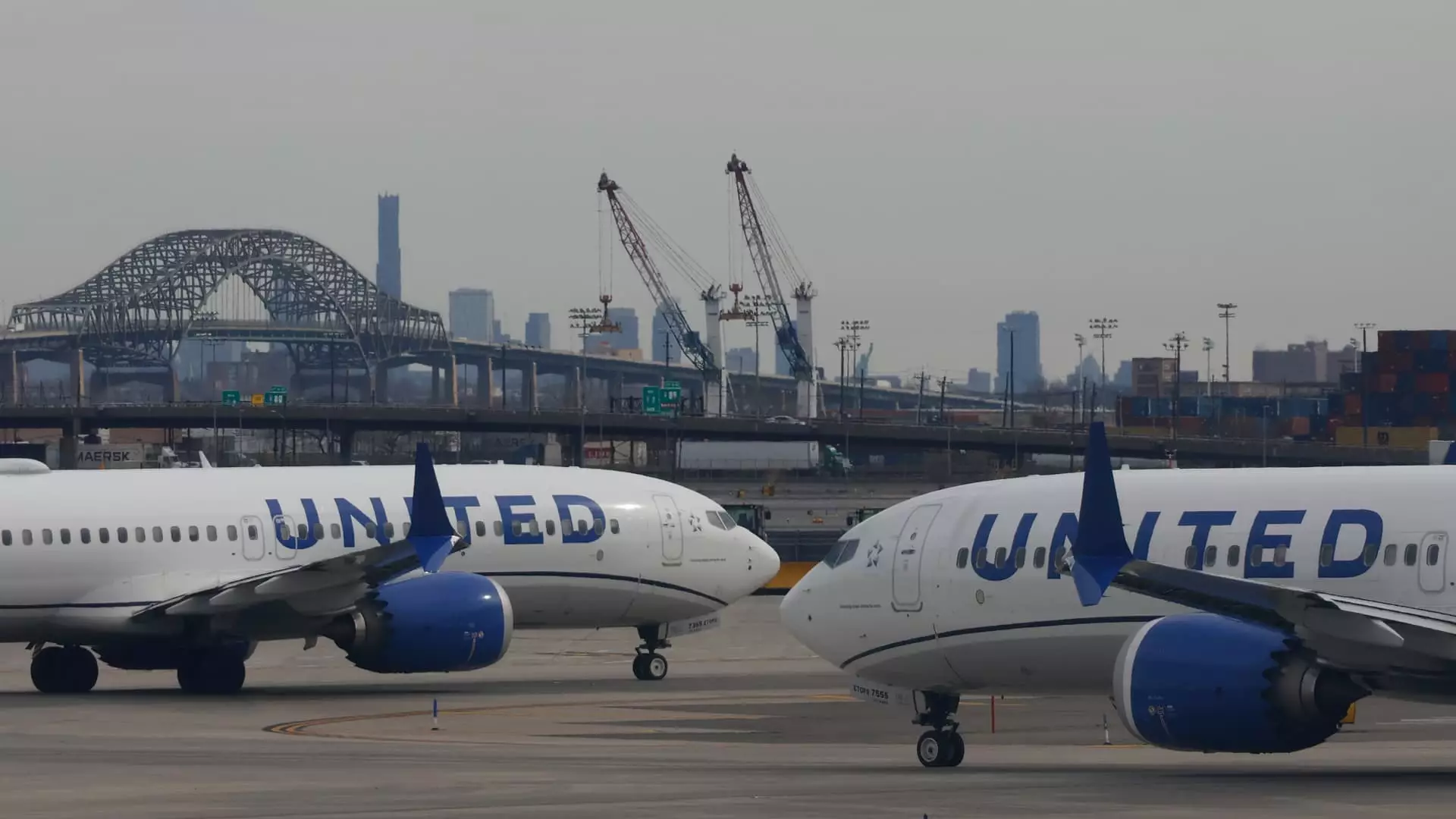United Airlines recently announced a drastic reduction of 35 daily flights at Newark Liberty International Airport, a hub notorious for congestion and inefficiency. This bold move follows a week marred by significant delays—over 1,700 flights disrupted—leaving passengers stranded and frustrated. Airline Chief Scott Kirby attributed these delays to recurring air traffic controller staffing shortages and a litany of technology issues that have plagued the airline industry. It’s hard not to feel that United Airlines is exposing its inadequacies and failing its customers during a critical time in the travel sector.
Blame Game: The FAA and Its Diminished Workforce
The Federal Aviation Administration (FAA) finds itself at the center of the chaos, a culprits in this situation as staffing issues yield dire consequences. While Kirby’s lamentations about a shortage of air traffic controllers may resonate with some, the reality is that these problems have been festering for years, exacerbated by COVID-19-related training delays. The Transportation Department has attempted to introduce incentives to resolve these shortages, yet they seem superficial in the face of a deep-rooted systemic problem. The excuses provided merely scratch the surface of what seems to be a failure of institutional preparedness and foresight.
Misguided Responses and Passenger Fallout
United Airlines is attempting to soften the blow to customers by waiving change fees for those affected by the Newark disruptions. Yet, this gesture feels more like a band-aid on a gaping wound. Thousands are left in limbo due to the airline’s operational shortcomings—not to mention the countless dollars spent on flights and accommodations that now hang in the balance. The industry’s history of customer service neglect leaves many questioning the efficacy of these measures. A flight disruption is not merely a logistics issue; it represents a complete failure of duty to those who trust airlines with their travel plans.
Implications for Travel and Industry Accountability
The ripple effect from Newark’s chaos poses broader questions about the travel industry’s reliability. Air travel has become an essential component of modern life, and as airlines face growing pressure, they must step up and take accountability for the experiences they offer. It’s unacceptable for United Airlines to act as though these disruptions are purely external forces beyond their control. As the industry continues to recover from the pandemic, it is imperative that adjustments are implemented at a managerial level to forego future travesties like this.
The Path Forward: Rethinking Air Travel Management
It is evident that a serious re-evaluation of operational management is essential for airlines if they intend to rebuild consumer trust. Investing in technology and human capital—particularly in training air traffic controllers—is vital for not only United Airlines but also for the industry as a whole. Airlines can no longer afford to point fingers; a true partnership with regulators and a commitment to proactive problem solving is essential for restoring passenger confidence as they navigate the skies with expectations for a reliable travel experience.

